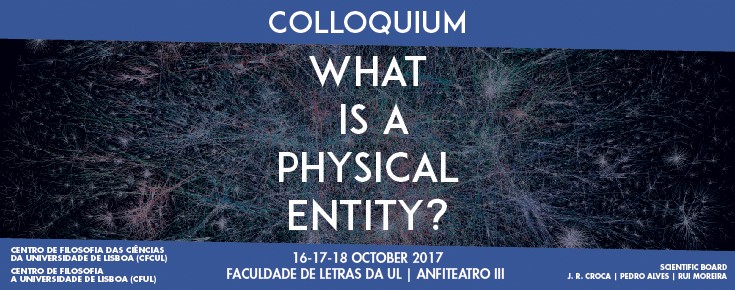
For understanding Nature, modern science has turned to mathematical and physical models that dramatically simplified the complexity of natural phenomena and processes. This was the very key for its long-lasting success. Nevertheless, as Husserl wrote regarding Galileo, this move was simultaneously a discovering and a concealing one. In a sense, the modern understanding of Nature was caught in mathematical formulae. Galileo's geometrization of Physics, and then the grow of analytical and linear methods in mathematical techniques, set the stage where Nature should be addressed from now on: a realm of idealized material essences, like mass points, perfect trajectories, exact positions, and so on, suitable for mathematical formalisms. However, the development of this realm was more and more oblivious of the original sense of Nature, and of the pieces of creative thinking that originally instituted all these idealized essences where modern Physics found out its objects. Locked-up in a realm consisting of material and formal essences, developing a more and more blind manipulation of symbols in formulae and calculations, Physics could now dream of an exact Nature as the simple correlate of this mathematical science of Nature. As a result, at least since the scientific revolution of the 17th century till the beginning of the last century, Physics will assume the perfect absolute localization in time and space, the identity, and the separability of all physical systems.
Now, at the beginning of our century, a kind of counter-reaction is emerging, due to the severe changes that the 20th century brought to classical Physics. What was really new in the science of Nature in the last century was but forth by Quantum Physics. It is no longer a classical theory, while Relativity continues to be to a certain extent classical, and can be viewed as the culminating point of Mechanics (reframing Newton’s gravitation law) and Electromagnetism (without the ether-hypothesis). Classical Mechanics, Relativity and Electromagnetism conveyed a clear and unambiguous ontology, respectively centered on the concepts of mass, distributed over space and time, of field, as an extended, non-punctual reality, and of space-time “curvature”, in its interactions with the stress-energy tensor. The mathematical formalisms they developed prompted by themselves, as their correlates, a clear conception of what the (exact) physical reality should be in and by itself.
The other way around, Quantum Mechanics developed a mathematical formalism which was largely undecided about the very nature of the entities to which it referred. This problem plagued Quantum Mechanics since its very beginnings, and still continues today. In addition, there are many other difficult aspects of Quantum Physics regarding both the depiction of the physical reality, and what should be accounted for as “physical”. Thus, concerning Quantum Mechanics, we are not in a somewhat Kantian situation. We have not a full-fledged, uncontroversial “fact of science” with its fixed ontology. In its place, we have an accurate mathematical formalism (perhaps, the most accurate science has ever created), and a problem regarding its ontological interpretation in order to characterize what is “physical”. The modern philosophy of Nature was written in mathematical formulae; now, with Quantum Physics, the mathematical formalism only promises a philosophy of Nature.
Quantum Mechanics is, thus, the opportunity to return to a renewed debate about Nature itself. By virtue of its baffling results, the classical constraints have felt-down. Every new approach to understand Reality must assume that physical beings are complex and have both properties of localization and non-localization, that physical entities share a certain degree of individuality and, at the same time, some degree of non-separability, and also that determinism and indeterminism are only extreme ideal boundaries in between of which physical beings generate and evolve.
So, the colloquium will be led by a twofold interest. On the one hand, in a kind of retrospective, historical reflection, it will try to shed light on the original insights that constituted modern Physics. On the other hand, looking forward, it will address the problems a new understanding of Nature imposes on us in the quantum, post-classical age of Physics.
So, we will question:
- What has phýsis become in light of Quantum Physics?
- What was phýsis for the Physics of modernity?
- How do these accounts of phýsis relate to the sense of Nature that opens the field in which, afterwards, the physicist enters as a methodical researcher?
We invite papers on any topic or question related to these issues. Submissions should be in the form of an extended abstract of no more than 1000 words, anonymized for blind review. Abstracts should be submitted by Sunday 31st July 2017, to colloquium.philosophyphysics@gmail.com.
Scientific board: José Croca | Pedro Alves | Rui Moreira









